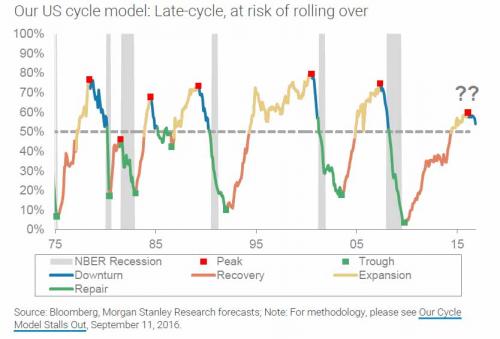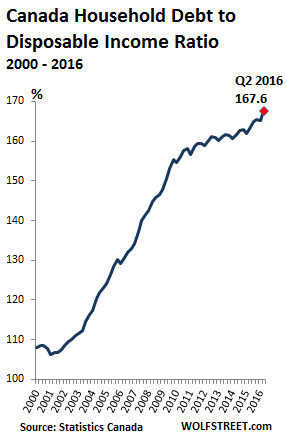
Ramón Casas Decadence 1899
Reading up on the Syria ‘chemical attack’ issue (is that the right term to use?). The headlines are entirely predictable, and by now that probably won’t surprise anyone, no matter where they are or what views they adhere to. We know there’s been an attack and that some kind of chemical was used. The media talk about sarin.
They also, almost unanimously, blame the Syrian government of Bashar al-Assad for it. But that’s the same government that just this week saw both US Foreign Secretary Rex Tillerson and US UN enjoy Nikki Haley point to a significant shift in American policy, towards a view that removing Assad is no longer a priority in US Middle-East policy.
That comes after many years of insisting that Assad must be removed. And after many years of US involvement in removing other regimes in the region, Saddam Hussein, Gaddafi. It also comes on the eve of a large Syria conference, the first in a long time, due to start today. Russia and the States send only lower-level representatives, politically sensitive etc., but still.
The question arises what reason the Syrian government could possibly have to launch a chemical attack anywhere on its territory, gruesome pictures of which, with many child casualties, were posted soon after the attack supposedly too place. And that’s where logic at least seems to break down.
Syria was not supposed to have any chemical warfare arsenals left, far as I understand, there was an accord to that extent in 2013. Did they hide any (Saddam WMD style?!), or did they recently obtain them (from Russia?!). But most of all, why use them on the eve of a conference where you have everything to gain?
I’ll be the last to claim that I know, but it certainly doesn’t make a lot of sense. Being denied recognition, legitimacy even in a sense, for years, and then throw it away the day before? Not even declaring Assad -and by association Putin and Iraq- to be complete idiots would seem to explain that. And they’re not idiots.
The Russians say a ‘rebel’ chemical weapons depot may have been hit. I don’t know, and barely a soul does, but opinions have been pre-cooked, and there we go again. There are pictures of White Helmets tending to the wounded, but then if this were sarin, that might not be advisable to do with bare hands and without gas masks. And the White Helmets themselves are not beyond scrutiny either. Meanwhile, Trump has followed everyone else in the West in accusing Assad.
Any of this sound familiar? It does to me. When I open my -personalized, no less- Google News page, all main headlines concerning either US politics or topics like the Syria chemical attack come from a ‘select’ group of ‘media’. It’s all NYT, WaPo, CNN, BBC, all the time. Google likes The Hill too, for some reason. Since my page is ‘personalized’ I don’t know how it is for others, but I have an idea.
The same opinion-forming (leading) ‘reporting’ that happens in the case of Syria, is also applied to the US. And it’s tearing the country apart, bit by inevitable bit. The MSM’s answer to the Trump campaign- and subsequent election- has been to do more of the same ‘leading’, much more. And they have plenty of takers. Subscriptions are way up, so they think they’ve hit a gold mine, a very welcome one too given where sales numbers were heading.
Trump’s the best thing that happened to WaPo in years. But then again, they still lost, and bigly. Their preferred candidate lost. And the entire storyline they had spun over, say, the entire year leading up to November 8, had gone nowhere. None of it got Hillary elected, and none of it was ever proven.
Now, of course, it’s not the job of news organizations to choose sides in politics (their job’s the opposite), and even less to make up a storyline in order to promote whatever side they pick. It’s really weird that that aspect has been largely lost on America over the past few years; not that it’s entirely new, don’t get me wrong, but it got a lot more pronounced and ‘brazen’.
It’s as if people have all of a sudden started to find it normal that their news sources tell them what to think. The echo chamber has become both much larger and a whole lot more cramped at the same time. And got for too comfy with 1984.
What makes it even weirder is that it should be obvious to us all that there has been a large shift in politics as well, albeit over a longer period of time. There is no left in the system anymore, there is no left left; workers and the poor in general have nobody left who represents them.
This is true in the US as it is in Europe. Britain’s Labor party is all but dead, Holland’s Labor equivalent went from 38 to 9 seats in the recent election, the list goes on. The US democrats? Are you kidding? Left? Left of what?
The media have followed this development as much as they have led the way. There’s a lot of synergy there; it’s just that there’s none left with the people they’re either supposed to represent or inform. But that in turn means you might as well say that the whole thing is dead. What left there still is left will have to re-invent itself.
The political system and the media may cross-pollinate as much as they want, and they obviously seem to want that a lot, but they still depend for their survival on a connection with people, voters, readers. Only, they appear to have concluded Groucho stye that “Hey, if you can fake that, you can fake anything..”
Problem is, this did cost the US media’s candidate the election. So now they’re echo-chambering to less than half of the population. Who are so receptive that they may be temporarily fooled into thinking they’re doing fine. But the other -more than- half already thinks they’re full of it, and that’s not going to change back (my humble prediction).
If the US MSM would go back to impartial reporting, they would be fine. The same is true for the Democratic party -and its link to the poorer part of America. But both have made their beds (and bets) and must now lie on them.
For the media, this means being forced to turn over ever more readers and viewers to ‘new media’. It’s not even a technology thing, it’s just that they themselves have chosen to become irrelevant. And yes, it is ironic that the soon-so-be richest man on the planet, Amazon’s Jeff Bezos, controls the bigliest web success and destroys the WaPo at the same time. It’s an awful shame too. But the paper for him is financial pocket change, not a legacy of hard work.
Bezos et al do this by trying to dictate what people think, by becoming Edward Bernays and Joe Goebbels. The idea might have worked without the Interwebs, but I must retract that: it would have been sacrificed on the altar of economic mayhem. Lots of irony in there, though.
The New York Times and Washington Post owe their reputation to America’s times of plenty, and those are gone, long gone. These papers are no longer capable of Woodward and Bernstein, because there’s nothing left that’s objective, the entire focus is partisan now, and that means you’re going to miss out on the big, the real stories, if they’re your news sources.
And it’s not even that they’re papers, and they may or may not get digital; it’s their owners’ choices for certain political directions that’s doing them in. Maybe that’s an inevitbale process; that news organizations must perish one sources change, or processes, or range. I’m not sure of that, though; I think they’re squandering a 100 year -or so- legacy on an altar of political megalomania.
And that gets me to what got me thinking about the reporting on Syria’s chemical attack to begin with, and the way it’s presented. That is, I read a lot of things, it’s what I do, but instead of the journalists asking the questions, I know it’s up to -people like- me to do that. That goes for Syria, and just as much for US domestic issues. There’s nobody left I can rely on. Again I aks of you: any of this sound familiar?
I’m by no means ready to go with everything Fox says, or any -formerly- right-wing source. But I can no longer trust the left wing either, let alone the formerly neutral ones. I’m on my own. And so are you.
Now, Russia spying on America is a done deal, of course they do. Everyone spies on every other one, if they have the technology they will do it. But Susan Rice ‘unmasking’ people in the Republican campaign is a step or two further. It may be technically legal, but it skirts far too close for comfort to potential political interference.
Since the entire Russia story was never proven, after a year and change of investigation by the entire media AND intelligence machine, I think perhaps it’s reasonable to suggest that it was always merely a convenient front for spying on Trump and the other Republicans. I don’t know that, it’s deduction that leads me there.
Still, of course the Russia-Trump connection probe just keeps on going. They haven’t found a thing, no shred, after all this time, but maybe, maybe… Look, I always said that a Trump presidency would be ugly and stupid -just still preferable to Hillary- but this ‘Putin is the devil’ meme is a lot uglier than that.
If and when you lose, as the Dems and their media have, doubling down is not the way to go, not if you want to win the next one. You have to look at what mistakes you’ve made and learn from them, not focus even more on what is or was wrong with the other side. That makes no sense. Losers must lose with grace, as much as winners win with it.
It’s not just in the US that people have completely lost sight of this most basic of principles; in the UK the post-Brexit bickering just won’t stop, and everything gets worse in the process. But it’s all about blaming the others, not your own side. How that can be helpful when you’ve lost is not clear to me at all.
Susan Rice will be before a Senate or Congress committee soon, and it will be interesting to see what she has to say. I’m sure her legal counsel have previously assured her that it was all perfectly within her job prescription. But she, what can I say, she doesn’t look good in her press appearances.
And you can complain all you want about the photos with only males in Trump’s office, but the entire glass ceiling female crew, Donna Brazile, Huma Abedin, Susan Rice, Hillary Clinton, they all look to have broken that ceiling but from the wrong side, (lost in gravity?!), and in the wrong way. They’ve all either cheated to get where they are (were), or cheated while they were there.
What a loss that is. That ceiling must be broken, badly, but not by women who are part of it. It fits the overall picture, though. If and when nothing is what it seems, it’s a lot easier to get people to believe what you tell them, certainly when you can put a NYT or WaPo stamp on what you’re saying. The problem is, by now you’ll only be talking to less than half of the people. And that’s on a good day.
The whole thing is broken, and you don’t heal that by pointing out to what extent the other side is broken. You heal it by looking at your own f*ck-ups, and then correct them. And until you do that, the risk of chemicals raining down on kids in Syria will just continue to be the same as Obama ordering drone strikes. Or the US and UK and France and Germany selling weapons to the Saudis that allow them to obliterate an entire nation and people in Yemen.
This is not about Assad, it’s about you, and Theresa May and Trump and Obama and Hillary and W. and Merkel and Tony Blair and scores of French and German politicians who’ve kept the death racket alive all these years. It’s where the money is.













